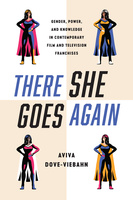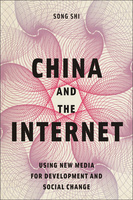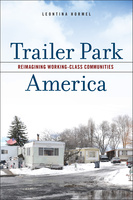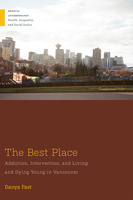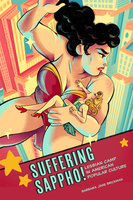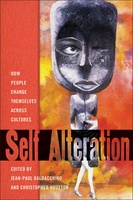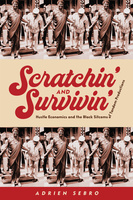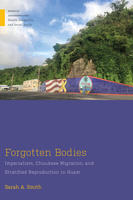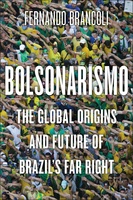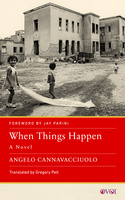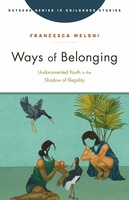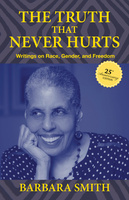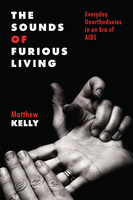
Bold Ideas, Essential Reading since 1936.
Rutgers University Press is dedicated to the advancement and dissemination of knowledge for a wide range of readers. The Press reflects and extends the University’s core mission of research, instruction, and service. They enhance the work of their authors through exceptional publications that shape critical issues, spark debate, and enrich teaching. Core subjects include: film and media studies, sociology, anthropology, education, history, health, history of medicine, human rights, urban studies, criminal justice, Jewish studies, American studies, women's, gender, and sexuality studies, LGBTQ, Latino/a, Asian and African studies, as well as books about New York, New Jersey, and the region.
Rutgers also distributes books published by Bucknell University Press.
There She Goes Again
Gender, Power, and Knowledge in Contemporary Film and Television Franchises
The Farm & Wilderness Summer Camps
Progressive Ideals in the Twentieth Century
Not Alone
LGB Teachers Organizations from 1970 to 1985
China and the Internet
Using New Media for Development and Social Change
China and the Internet analyzes how Chinese activists, NGOs, and government offices have used the Internet to fight rural malnutrition, the digital divide, the COVID-19 pandemic, and other urgent problems affecting millions of people. It presents five theoretically-informed case studies of how new media have been used in interventions for development and social change, including how activists battled against COVID-19.
Between Care and Criminality
Marriage, Citizenship, and Family in Australian Social Welfare
When Cowboys Come Home
Veterans, Authenticity, and Manhood in Post–World War II America
When Cowboys Come Home shows how World War II changed the ways men thought about their roles in American society. For three writers who served—James Jones, Stewart Stern, and Edward Field—the war taught that manhood didn’t have to be based on bravery and heroism, but could be defined by authenticity, sensitivity, and male camaraderie. Rebelling against the orthodoxies of their time, these veterans reimagined what roles a man could play and their work set the foundation for the revolutions of the sixties.
Watching While Black Rebooted!
The Television and Digitality of Black Audiences
Watching While Black Rebooted!
The Television and Digitality of Black Audiences
Trailer Park America
Reimagining Working-Class Communities
The Best Place
Addiction, Intervention, and Living and Dying Young in Vancouver
Suffering Sappho!
Lesbian Camp in American Popular Culture
Self-Alteration
How People Change Themselves across Cultures
Scratchin' and Survivin'
Hustle Economics and the Black Sitcoms of Tandem Productions
Providing a critical history of Tandem Productions, the company behind nearly all the hit Black sitcoms of the 1970s, including Good Times, The Jeffersons, Sanford and Son, and Diff’rent Strokes, Adrien Sebro explores how their sitcom plots paralleled what was happening behind the scenes, as talented African-Americans devised strategies to gain creative agency and fair financial compensation.
New Israeli Horror
Local Cinema, Global Genre
Forgotten Bodies
Imperialism, Chuukese Migration, and Stratified Reproduction in Guam
Bolsonarismo
The Global Origins and Future of Brazil’s Far Right
When Things Happen
A Novel
Ways of Belonging
Undocumented Youth in the Shadow of Illegality
The Truth That Never Hurts 25th anniversary edition
Writings on Race, Gender, and Freedom
The Sounds of Furious Living
Everyday Unorthodoxies in an Era of AIDS
The Sounds of Furious Living seeks to understand the AIDS activist tradition, identifying the historical currents out of which it arose. Embracing a patient-centered, social historical lens, it traces historic shifts in popular understanding of health and perceptions of biomedicine through the 19th and 20th centuries to explain the lasting appeal of unorthodox health activism into the modern era. In asking how unorthodox health activism flourished during the 20th century’s last major pandemic, Kelly also seeks to inform our understanding of resistance to biomedical authority in the setting of the 21st century’s first major pandemic: COVID-19. As a deeply researched portrait of distrust and disenchantment, The Sounds of Furious Living helps explain the persistence of movements that challenge biomedicine’s authority well into a century marked by biomedical innovation, while simultaneously posing important questions regarding the meaning and metrics of patient empowerment in clinical practice.

